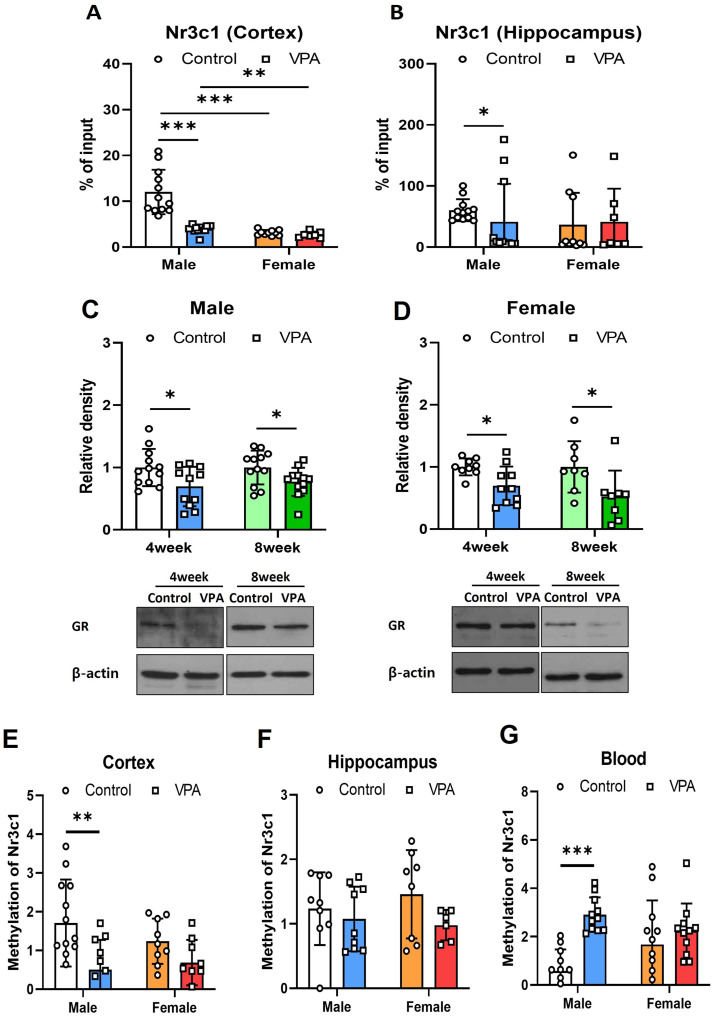
Investigation of long-term epigenetic changes in the Nr3c1 gene by neonatal valproate exposure in juvenile rats


Neurodevelopmental disorders such as autism spectrum disorder (ASD), are complex conditions influenced by both genetic and environmental factors. Epigenetic changes serve as a critical bridge between these factors, potentially mediating the effects of environmental exposures on gene expression patterns crucial for neural development. These modifications, occurring during pregnancy or early postnatal life, could have long-term effects on genes associated with neurodevelopment, increasing the risk of neurodevelopmental disorders. Valproic acid (VPA) is linked to an increased risk of ASD when exposure occurs in utero.1 VPA-exposed rodent models accurately reflect human ASD conditions, demonstrating changes in social behaviors and glial precursor proliferation that may influence synaptic connectivity, neuroinflammation, and the integrity of the blood–brain barrier, all of which are implicated in ASD pathophysiology.2 VPA inhibits histone deacetylase, leading to histone acetylation (e.g., H3K27ac) and affecting the epigenetic regulation of genes involved in neurogenesis and transcription factors such as Ascl13 and Foxo3.4 This study investigates epigenetic mechanisms, including histone modification and DNA methylation, impacting brain development in neonatally VPA-exposed rats.
